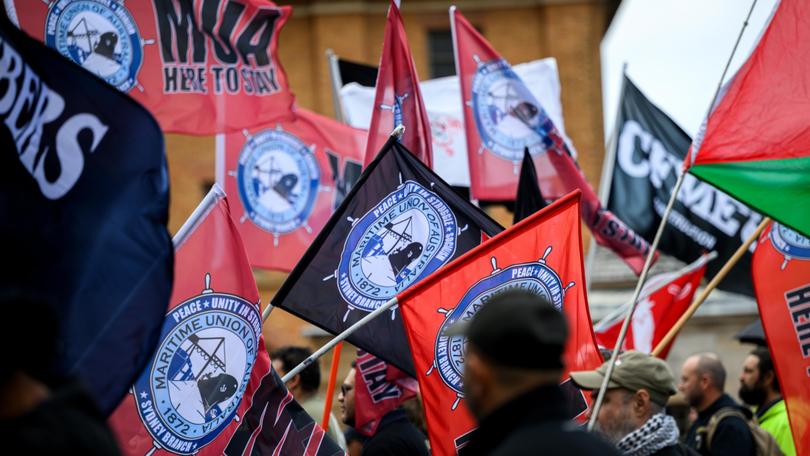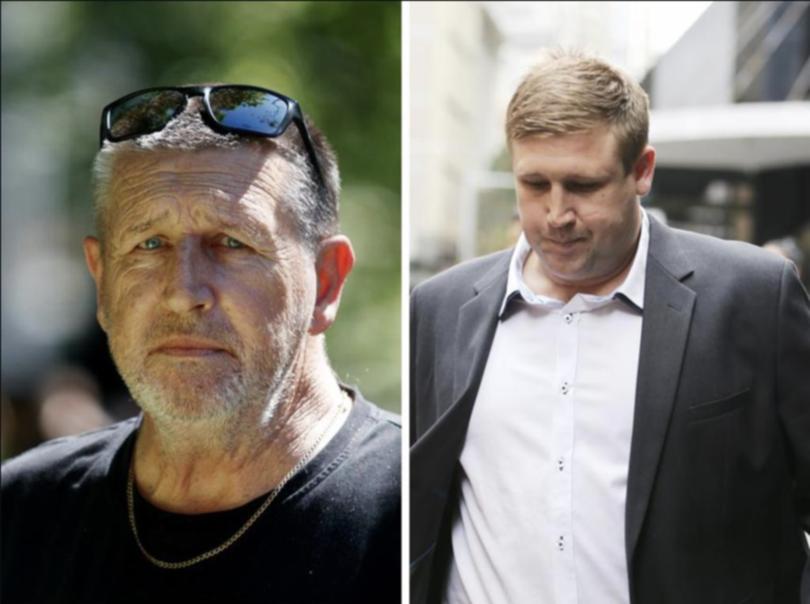AARON PATRICK: Guilt, corruption and cleaning up the CFMEU
AARON PATRICK: Exiled leaders of the construction union want to take back control of the organisation, which has faced a long history of dubious allegations.

A couple of days after the last elected leader of the CFMEU’s construction division in NSW pleaded guilty to corruption, you might have thought other union officials would want to distance themselves from the now-notorious Darren Greenfield.
Instead, in a shouty speech at a May Day March in Sydney, a union leader called the barrister hired to clean out lawlessness in the CFMEU a “scab” who needed to be replaced to allow members to return “our exiled leaders”.
“We’re going to fight until we get our union back and it’s in the hands of the rank-and-file,” said Paul Keating, the leader of the Maritime Union’s Sydney branch, which is the “M” in CFMEU.
Sign up to The Nightly's newsletters.
Get the first look at the digital newspaper, curated daily stories and breaking headlines delivered to your inbox.
By continuing you agree to our Terms and Privacy Policy.The union was never a democracy. In New South Wales it operated as a for-profit enterprise for some officials, who sold builders access to construction labour.
Guilty pleas
On Tuesday, in return for the withdrawal of some charges, Mr Greenfield and son Michael Greenfield, his former deputy, pleaded guilty to taking bribes.
Even though convictions are likely, the case says more about the failure of policing union corruption than success fighting it.
Corruption allegations followed Darren Greenfield for a decade, and did not stop him becoming one of the most powerful union figures in NSW.
The 2014-15 royal commission into unions were told Mr Greenfield received $2500 a week from labour-hire companies connected to George Alex, a Sydney crime figure. The commission’s barrister accused Mr Greenfield of threatening the life of another union official who complained about his ties to Mr Alex.
Promotion
Police forces have long been wary of investigating unions. The union ignored the royal commission and promoted Mr Greenfield to state secretary of the CFMEU construction division in 2018.
In unions, state leaders are usually more powerful their the federal counterparts because they collect members’ dues.
Not only did the job make Mr Greenfield an important decision-maker in the country’s biggest construction market, he became a player within the state Labor Party. The CFMEU was allowed to vote in internal elections in return for large financial contributions.
At a May Day rally in Newcastle 2023, he crowed about the federal Labor government’s abolition of the Australian Building and Construction Commission, an agency designed to prevent lawless behaviour by his union.
“We all delivered to them to get them into government, so they need to deliver for us,” he said.

Scheming in exile
The demand was an example of the union’s arrogance. The bribery charges were laid against Mr Greenfield 2021 following a joint investigation by the Australian Federal Police and NSW police.
Not only was he allowed to continue in his job, the union set aside $4 million of members’ funds for the Greenfields’ defence. Senior officials proclaimed his innocence.
Newspaper coverage last year led the federal government to remove most of the leaders from the construction union, including Mr Greenfield. From exile, many continue to scheme to get their jobs back.
Overwhelming evidence demonstrates Australia’s construction industry is woefully inefficient, raising costs for the whole of society. CFMEU corruption appears to be a major contributor to the problem, albeit one difficult to quantify.
The Greenfields’ guilty pleas are an important step towards fixing the problem. But in the long decade it took to reach a guilty plea, construction-union lawlessness was able to flourish across the country.
Their acknowledged wrongdoing should be seen as the start of a clean up the industry, not the culmination of years of investigations.

